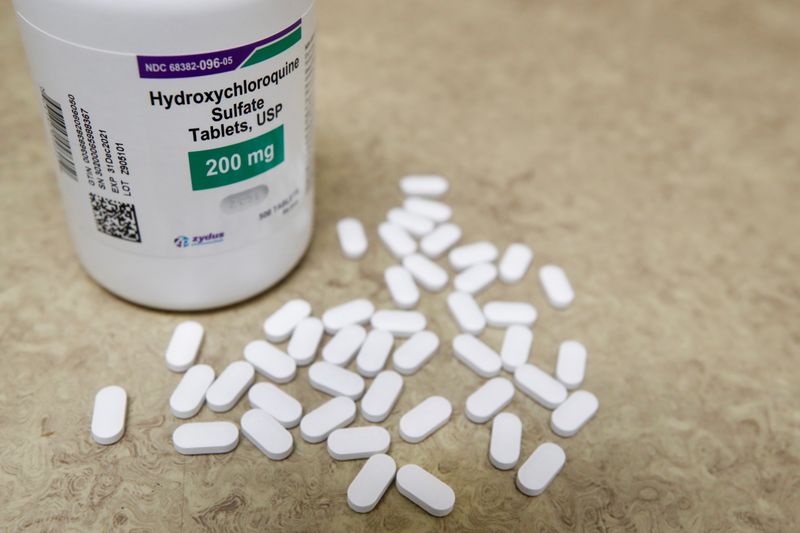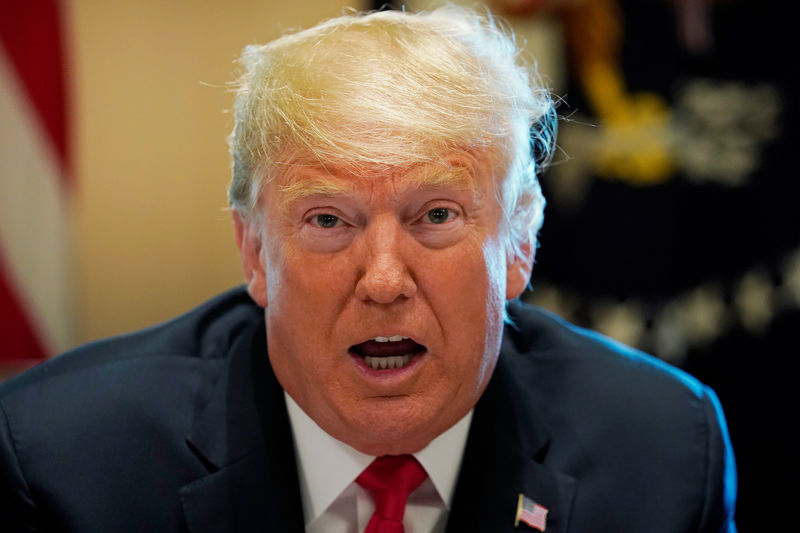By Deena Beasley and Manas Mishra
(Reuters) - The U.S. Food and Drug Administration on Monday revoked its emergency use authorization for hydroxychloroquine to treat COVID-19, but quickly came under fire from President Donald Trump, who said only U.S. agencies have failed to grasp its benefit in fighting the coronavirus.
Based on new evidence, the FDA said it was no longer reasonable to believe that hydroxychloroquine and the related drug chloroquine may be effective in treating the illness caused by the novel coronavirus.
The FDA also warned that the drugs have been shown in lab studies to interfere with Gilead Sciences Inc (NASDAQ:GILD)'s antiviral drug remdesivir - the only medicine so far to show a benefit against COVID-19 in formal clinical trials.
The move comes after several studies of the decades-old malaria pills suggested they were not effective either as a treatment for or to prevent COVID-19.
British scientists earlier this month halted a large trial after deciding that hydroxychloroquine was "useless" at treating COVID-19 patients.
Hydroxychloroquine's anti-inflammatory and antiviral properties suggested it might help COVID-19 patients, and the FDA authorized its emergency use in March at the height of a pandemic for which there were no approved treatments.
The early enthusiasm was partly based on laboratory experiments in which the drug appeared to neutralize the virus. Chloroquine, which is not approved for any use in the United States and has more side effects, has not fared any better in human clinical trials.
In March, Trump said hydroxychloroquine in combination with the antibiotic azithromycin had "a real chance to be one of the biggest game changers in the history of medicine," with little evidence to back up that claim.
He later said he took the drugs preventively after two people who worked at the White House were diagnosed with COVID-19, and he urged others to try it.
“I took it and I felt good about taking it. I don’t know if it had an impact, but it certainly didn’t hurt me,” Trump said on Monday.
Trump said there had been "great reports" out of France, Spain and other places, without offering any evidence or further explanation. France is one of the countries that has already stopped using the drug for COVID-19 patients.
U.S. Secretary of Health and Human Services Alex Azar said the drug is still being studied for possible use at an earlier stage of the disease.
“A lot of the data that has come out that was more negative was people who were quite ill in the hospital,” he said.
The drug can still be used with a doctor's prescription, Azar noted. Any drug with U.S. approval can be used in any way a doctor sees fit regardless of what it has been approved for.
DRUG'S USE ALREADY IN DECLINE
Doctors in recent weeks had already pulled back on the use of hydroxychloroquine for COVID-19, after several studies suggested it is not effective and may pose heart risks for certain patients.
The Infectious Diseases Society of America on Monday backed the FDA decision "to revoke emergency use authorization for hydroxychloroquine and chloroquine."
Half of hospitals responding to a mid-May survey conducted by the American Society of Health-System Pharmacists (ASHP) reported excess supplies of hydroxychloroquine that they expected to return to wholesalers.
Current U.S. government treatment guidelines do not recommend its use for COVID-19 patients outside of a clinical trial.
France, Italy and Belgium late last month halted use of hydroxychloroquine for COVID-19 patients. But the United States last month sent 2 million doses to Brazil, which has emerged as the pandemic's latest epicenter.
Hundreds of trials testing hydroxychloroquine or chloroquine as interventions for COVID-19 are still underway, including a U.S. study designed to show whether hydroxychloroquine in combination with azithromycin can prevent hospitalization and death from COVID-19.

